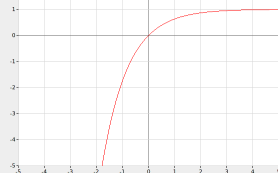Blog
Ahoy, Critterfolk!
New entry May 28
Critter Notices
Books from Critters!
Check out Books by Critters for books by your fellow
Critterfolk, as well as my list of recommended books for writers.

The Sigil Trilogy
If you're looking for an amazing, WOW! science fiction story, check out THE SIGIL TRILOGY. This is — literally — one of the best science fiction novels I've ever read.How to Write SF
 The Craft of Writing Science Fiction that Sells by Ben Bova, best-selling author and six-time Hugo Award winner for Best Editor. (This is one of the books your ol' Critter Captain learned from himself, and I highly recommend it.)
(Also via Amazon)
The Craft of Writing Science Fiction that Sells by Ben Bova, best-selling author and six-time Hugo Award winner for Best Editor. (This is one of the books your ol' Critter Captain learned from himself, and I highly recommend it.)
(Also via Amazon)
Interviewed!
I was interviewed live on public radio for Critters' birthday, for those who want to listen.
Free Web Sites
Free web sites for authors (and others) are available at www.nyx.net.
ReAnimus Acquires Advent!
ReAnimus Press is pleased to announce the acquisition of the legendary Advent Publishers! Advent is now a subsidiary of ReAnimus Press, and we will continue to publish Advent's titles under the Advent name. Advent was founded in 1956 by Earl Kemp and others, and has published the likes of James Blish, Hal Clement, Robert Heinlein, Damon Knight, E.E. "Doc" Smith, and many others. Advent's high quality titles have won and been finalists for several Hugo Awards, such as The Encyclopedia of Science Fiction and Fantasy and Heinlein's Children. Watch this space for ebook and print editions of all of Advent's current titles!
Book Recommendation
 THE SIGIL TRILOGY:
The universe is dying from within...
"Great stuff... Really enjoyed it." — SFWA Grandmaster Michael Moorcock
THE SIGIL TRILOGY:
The universe is dying from within...
"Great stuff... Really enjoyed it." — SFWA Grandmaster Michael Moorcock
Announcing ReAnimus Press
If you're looking for great stuff to read from bestselling and award-winning authors—look no further! ReAnimus Press was founded by your very own Critter Captain. (And with a 12% Affiliate program.) [More]
~~~
FEATURED BOOK
~~~
A Mathematical Look at Critters Diplomacy
[Return to: Diplomacy Home Page & Reading Option; ebook, paperback, & hardback availables]
This is a reply to a Critter member whom I'd asked to review the Critters diplomacy standard. That didn't seem to do the trick, and they said they were mathematically inclined, so I explained the need for diplomacy -- and how phrasing is different from bad/good news itself -- in mathematical terms. So, I've linked this to the site just in case this helps anyone grasp what I'm getting at. (Their email is at the bottom, where you can see that my first attempt to explain the difference between bad news and how you deliver bad news didn't do the trick.)
From: Critters Subject: Re: Crit tone Well, I still think we're not quite on the same wavelength... Since you're a math person, let me put it in mathematical terms. There are three dimensions at play here: X axis: Content -- what you want to say -- grammar is wrong here, this plot point doesn't work, etc. x<0 is bad news, x>0 is good news. Y axis: Form -- how you explain X -- y>0 is (generally) phrasing your x datapoint as your friendly opinion; y<0 is (generally) phrasing your comments as facts or other ways that I've found don't work as well. Z axis: Author's reaction -- how the author of the manuscript reacts to your critique. z>0 is good, they find your critique useful (even if x<0). z<0 means they react negatively to your critique. The z<0 case is the one I'm most concerned about. We want z>0. When z<0 you've not communicated to the author, so your time was, in a sense, wasted. Now the common confusion is that x and y are related -- that y is a function of x, like y=x. What I found is that it isn't. And it's important that it isn't, because z _is_ a function of y, in a strong way. I don't know what the true function z=f(x,y) is in this case, but my experience is that it's just a teeny bit related to x (how bad your news is) but it's dramatically related to y (how you phrase the bad news). Maybe z = (exp(x/100)-1) + (1-exp(-y))... ! That's probably not that far off, conceptually: Negative content, x<0, doesn't seem to upset authors (just a little). Positive content makes them feel better (naturally). Whereas look at the effects of y! Poor phrasing, y<0, makes z go VERY negative (like exponentially). This correlates with the kind of email I get from authors. Here's what the 1-exp(-y) term looks like graphically:
| Receiver's Reaction |
 |
| Diplomacy of Phrasing [Improperly diplomatic ... Properly Diplomatic] |
[Return to: Diplomacy Home Page & Reading Options]
© Andrew Burt

